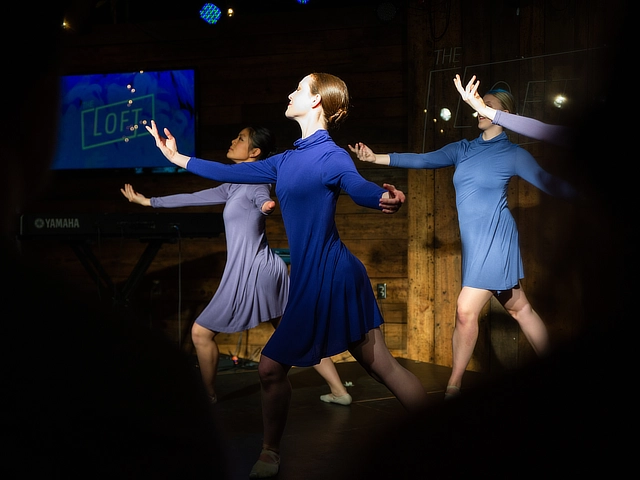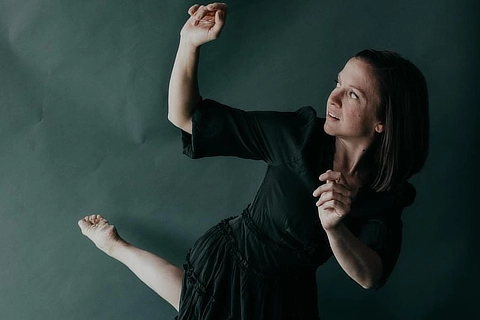
When was the last time you opened the Psalms in prayer? Does your church regularly pray them in worship? Do you pray one each day at home? Maybe you have a favorite Psalm or verse of a Psalm that is always ready on your mind for times of trouble or thanksgiving. “The Lord is my Shepherd” (Psalm 23) may come to mind. Or perhaps none of this sounds familiar, and you don’t often pray or even relate to these prayers.
The Psalms are ancient prayers, but they are also scriptural prayers and prayers that Jesus prayed and in which he dwells (Luke 24:44). When we bravely dive into the Psalms, we find that God is still meeting us afresh in these old words of faith. This article holds encouragement and practices to help you embrace the Psalms again or for the first time. I’ll use Psalm 141 as an example.
Psalm 141 (Common English Bible translation):
A psalm of David.
1 I cry out to you, Lord: Come to me—quickly!
Listen to my voice when I cry out to you!
2 Let my prayer stand before you like incense;
let my uplifted hands be like the evening offering.
3 Set a guard over my mouth, Lord;
keep close watch over the door that is my lips.
4 Don’t let my heart turn aside to evil things
so that I don’t do wicked things with evildoers,
so I don’t taste their delicacies.
5 Instead, let the righteous discipline me;
let the faithful correct me!
Let my head never reject that kind of fine oil,
because my prayers are always against the deeds of the wicked.
6 Their leaders will fall from jagged cliffs,
but my words will be heard because they are pleasing.
7 Our bones have been scattered at the mouth of the grave,
just like when the ground is broken up and plowed.
8 But my eyes are on you, my Lord God.
I take refuge in you; don’t let me die!
9 Protect me from the trap they’ve set for me;
protect me from the snares of the evildoers.
10 Let the wicked fall into their own nets—all together!—
but let me make it through safely.
The Psalms were written as liturgy—words of worship spoken aloud. We have the Psalms in written form as a remembrance of prayers prayed aloud again and again in the worship gatherings of Biblical Israel. When we only silently absorb the words on the pages of our Bibles, we miss an important dynamic of the Psalms: The human voice reaching out to God.
Usually, it takes a lot for me to pray out loud when I’m alone. When really troubled or really glad, I may utter, “Why, God?” or “Thank you, Lord!” A lot of my praying is in quiet thought. Praying out loud asks something more of our faith and draws us into deeper connection with God. Using our voice says, “I’m not just talking to the air. You’re here, God, and you’re listening.”
Let’s practice praying from the Psalms out loud. Look to Psalm 141:3: “Set a guard over my mouth, Lord. Keep a close watch over the door that is my lips.” How much more do we feel what we’re asking God when we speak this aloud, through the doors of our lips! We’re not just feeling the prayer but also letting God work on the results, as we practice speaking God’s words through our mouths. Give yourself more time to pray this verse aloud before reading on. Maybe you will not only speak the words aloud but also touch your cheeks or jaw as you’re speaking and connect with this part of your body over which you’re inviting God’s care.
Involving the body is another way to deepen your prayers in the Psalms. The Psalms frequently name postures and body parts in prayer. When you pray the Psalms with this in mind, you will find many opportunities for physical engagement in prayer. We can look to a favorite, Psalm 23: “He (the Lord) makes me lie down… makes me walk in right paths… You prepare a table before me” (Ps. 23:2-3, 5). We should involve our body in this prayer in ways that the prayer itself invites. We can pray while walking or lying down or sitting at the table, or we can use creative movement to take us to all these places while we pray. One of the practices I will teach at Animate Worship Camp is a movement prayer of Psalm 23 that I developed in community, inviting people to share gestures that came to mind when hearing these words.
Coming back to Psalm 141, look to verse 2: “Let my prayer stand before you as incense; let my uplifted hands be like the evening offering.” Take a moment to pray these words out loud, and then say them again while lifting your hands high. What new feelings does this posture bring?
Lifting my arms takes me back to childhood and the gesture that my parents knew to mean, “Pick me up. Hold me close.” I think of my children lifting their hands in love to me. I think of being God’s child, asking God to pick me up. Our bodies and the meaning and memories they carry are a vital resource in our prayer life.
Engaging senses of smell and touch, 141:5 mentions “fine oil.” Fine oil is a physical reminder of God’s blessing. Anointing oil placed on the forehead in prayer both feels and smells good. It draws us toward God through our senses. Psalm 141 describes the correction and discipline received in the faith community as a blessing (a different take from how we often imagine blessing). Pray Psalm 141:5 aloud. Now say the words again while placing your hands on your forehead. Remember the blessing of the people who have given you advice and correction in your faith. Now, for bonus points, find some olive oil, and pray these words while placing some on your fingers, smelling it, and making the shape of the cross on your forehead. The more senses we bring to our prayers, the more doors we open to God’s presence.
If we need encouragement as today’s Christians to pray these prayers, it is that Jesus prayed them and told his disciples that they would find him here. The Psalms reveal Jesus, and drawing nearer to Jesus is one of the main purposes of Christian prayer. So, let’s pray these prayers with all we have—our mind, our body, our senses, our whole self. Continue the practices you tried in this reading and see how you encounter God anew when you bring your whole self to the prayers of the Psalms.
 Sarah Smoot (M.Div. Duke Divinity School) is an ordained Elder in the United Methodist Church and is a Co-Pastor of Church of the Reconciler in Birmingham, Alabama. She is a lifelong dancer and is a company member with Sanspointe Dance Company.
Sarah Smoot (M.Div. Duke Divinity School) is an ordained Elder in the United Methodist Church and is a Co-Pastor of Church of the Reconciler in Birmingham, Alabama. She is a lifelong dancer and is a company member with Sanspointe Dance Company.
We invite you to join us for Animate 2024! By registering for Animate, you will have the chance to choose an artistic track that sparks your interest and select from a variety of toolbox classes. Our exceptional Samford Faculty, as well as guest artists who are experts in their respective fields, will be your instructors. The toolbox classes for 2024 include “Share Your Story” and “Move into Prayer,” taught by the author of this post and one of our Animate preachers this year, Rev. Sarah Smoot.
For additional reading, check-out:
- How Poetry Helps Us Dwell in Difficulty by Samford Assistant English Professor, and Animate 2024 poetry toolbox instructor, Olivia Milroy Evans.
- Gospel: The Message Behind the Music by Nate Glasper, Animate 2024 worship leader.
